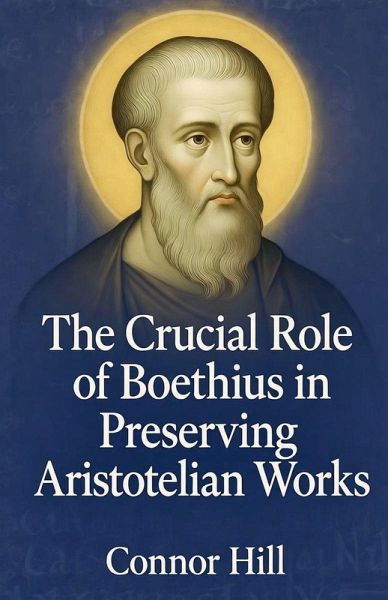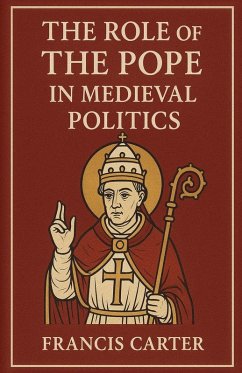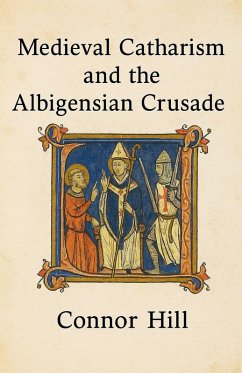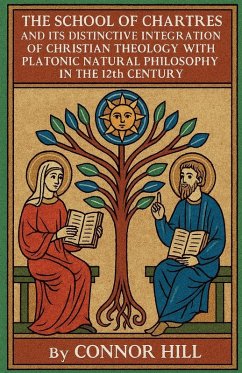
The Crucial Role of Boethius in Preserving Aristotelian Works
Versandkostenfrei!
Versandfertig in 1-2 Wochen
16,99 €
inkl. MwSt.

PAYBACK Punkte
8 °P sammeln!
In the twilight of the Roman Empire, one remarkable scholar stood between the wisdom of antiquity and a thousand years of darkness. Anicius Manlius Severinus Boethius-statesman, philosopher, and eventual martyr-recognized that the intellectual treasures of Greece were slipping away as the classical world crumbled. His desperate race to translate and preserve Aristotle's works would become one of the most consequential intellectual projects in history. This book reveals the extraordinary story of Boethius's preservation efforts and their profound impact on Western civilization. Born to Roman no...
In the twilight of the Roman Empire, one remarkable scholar stood between the wisdom of antiquity and a thousand years of darkness. Anicius Manlius Severinus Boethius-statesman, philosopher, and eventual martyr-recognized that the intellectual treasures of Greece were slipping away as the classical world crumbled. His desperate race to translate and preserve Aristotle's works would become one of the most consequential intellectual projects in history. This book reveals the extraordinary story of Boethius's preservation efforts and their profound impact on Western civilization. Born to Roman nobility but living under Ostrogothic rule, Boethius witnessed firsthand the fragmentation of classical learning. As knowledge of Greek rapidly disappeared in the Latin West, he undertook a monumental project: translating Aristotle's complete works to ensure these philosophical foundations wouldn't vanish forever. Though tragically cut short by his politically-motivated execution at age forty-four, Boethius's achievement was remarkable. His translations of Aristotle's logical works provided the only access Latin Europe had to these texts for nearly six centuries. The technical vocabulary he created-terms like "substance," "quality," and "relation"-still shapes our philosophical discourse today. His commentaries and original works transmitted not just content but methods of thinking that would define medieval intellectual life and lay groundwork for the eventual rebirth of classical learning during the Renaissance. From his early promise as the brilliant scion of an ancient family to his final days composing the timeless Consolation of Philosophy while awaiting execution in prison, Boethius's life reads like a classical tragedy. Yet his intellectual legacy represents one of history's great triumphs-the preservation of essential philosophical tools that would eventually help rebuild Western thought. Drawing on recent scholarship and primary sources, this book takes readers on a journey through late antiquity's tumultuous intellectual landscape. We explore how Boethius's translations survived through monastic scriptoria during Europe's darkest hours, influenced medieval cathedral schools and emerging universities, and eventually converged with Arabic and Byzantine preservation efforts to fuel the scholastic revolution. The book concludes by examining what might have been lost without Boethius's crucial intervention-a counterfactual history that illuminates his true significance. For readers fascinated by the fragile threads connecting our intellectual heritage across centuries, this book offers a compelling account of how one individual's dedication preserved philosophical treasures at the moment of their greatest vulnerability. It reminds us that the transmission of knowledge across generations is never guaranteed but depends on the foresight and commitment of those who recognize what is truly worth saving.








![The Whole Works of King Alfred the Great [Ed. by J.a. Giles]. Jubilee Ed Cover The Whole Works of King Alfred the Great [Ed. by J.a. Giles]. Jubilee Ed](https://bilder.buecher.de/produkte/68/68916/68916397n.jpg)



